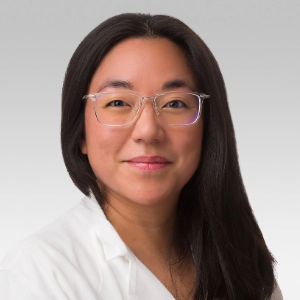
November 2024 Newsletter

November 2024 Newsletter

Faculty Profile
Catalina Lee-Chang, PhD, is an assistant professor of Neurological Surgery. Her laboratory is focused on elucidating fundamental aspects of the immunology of central nervous system tumors and developing novel immunotherapy strategies to tackle deadly and incurable tumors such as glioblastoma. Lee-Chang is also a member of the Center for Human Immunobiology and the Robert H. Lurie Comprehensive Cancer Center of Northwestern University.
What are your research interests?
I am deeply interested in exploring all aspects of neuroimmunology and oncology, with a particular focus on understanding the intricate mechanisms by which cancers of the central nervous system evade immunosurveillance. This phenomenon, where the immune system fails to recognize and attack malignant cells, poses a significant challenge in developing effective therapies. My lab designs and develops innovative B-cell-based therapies to generate a robust and efficient anti-tumoral immune response. By harnessing the natural ability of B-cells to recognize and target cancer cells, we aim to create therapies that enhance the immune system’s capacity to fight tumors, offering new hope for brain tumor treatment.
What is the ultimate goal of your research?
The ultimate goal of my research is to find a cure for brain tumors. I aim to contribute to research that could lead to innovative treatments, such as B-cell-based therapies, enhancing immune responses to these cancers and improving survival rates for patients with central nervous system tumors.
How did you become interested in this area of research?
During my PhD, I was trained in neuroinflammation and autoimmunity, gaining valuable insights into the complex interactions between the nervous and immune systems. However, during my postdoc training at the National Institutes of Health, I truly deepened my understanding and expertise in immune-oncology research where I investigated how the immune system can be harnessed to target and eliminate cancer cells. This unique combination of fields fuels my passion for advancing therapies that address both neurological and oncological disorders, ultimately improving patient outcomes through innovative research and collaborative efforts.
How is your research funded?
My lab is funded by the National Cancer Institute (R37, P50 Brain Tumor SPORE), the Cancer Research Institute and the Chordoma Foundation. I co-founded Sera BioPharma, a biotech focused on developing autologous B-cell-based therapies for cancer treatment.
What types of collaborations are you engaged in across campus (and beyond)?
I feel privileged to work in a highly collaborative Department of Neurological Surgery where partnerships are founded on strong friendships. In addition, my lab has developed significant collaborations with investigators from the Lou and Jean Malnati Brain Tumor Institute and the Center of Human Immunobiology. Additionally, we have established enduring relationships with other esteemed laboratories, including those at Columbia, UCSF, Moffitt and UCLA, among many others. These collaborations enhance our research capabilities and foster a vibrant exchange of ideas, allowing us to effectively tackle complex challenges in brain tumor research and immunobiology, ultimately aiming to improve outcomes for patients facing these formidable conditions.